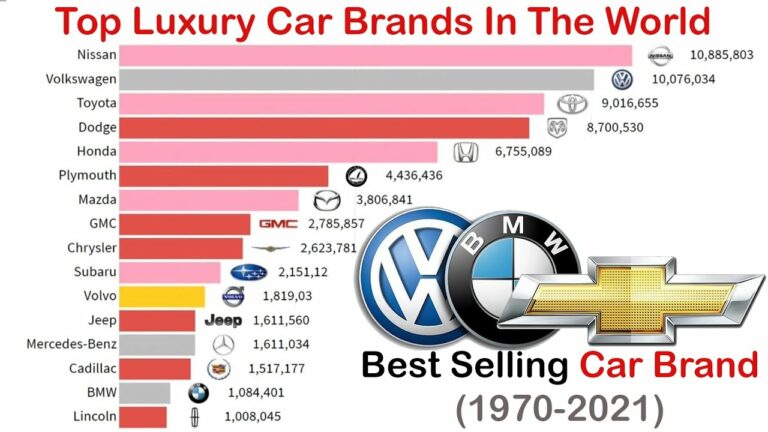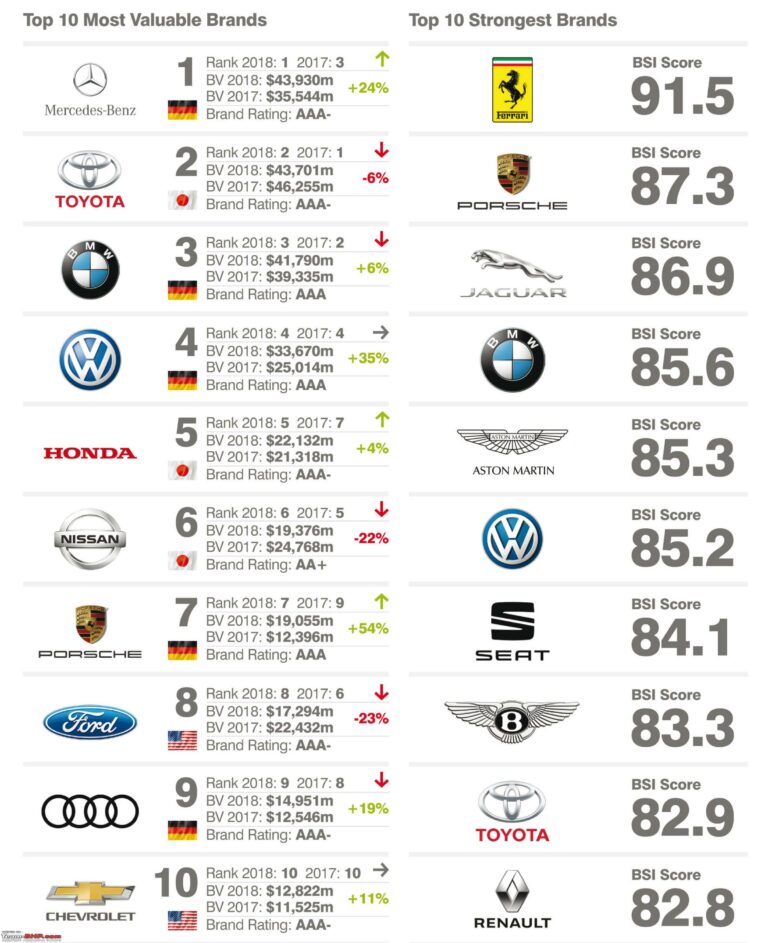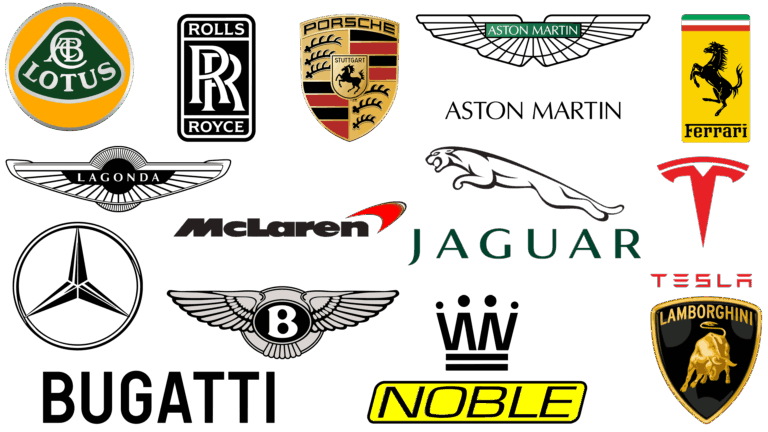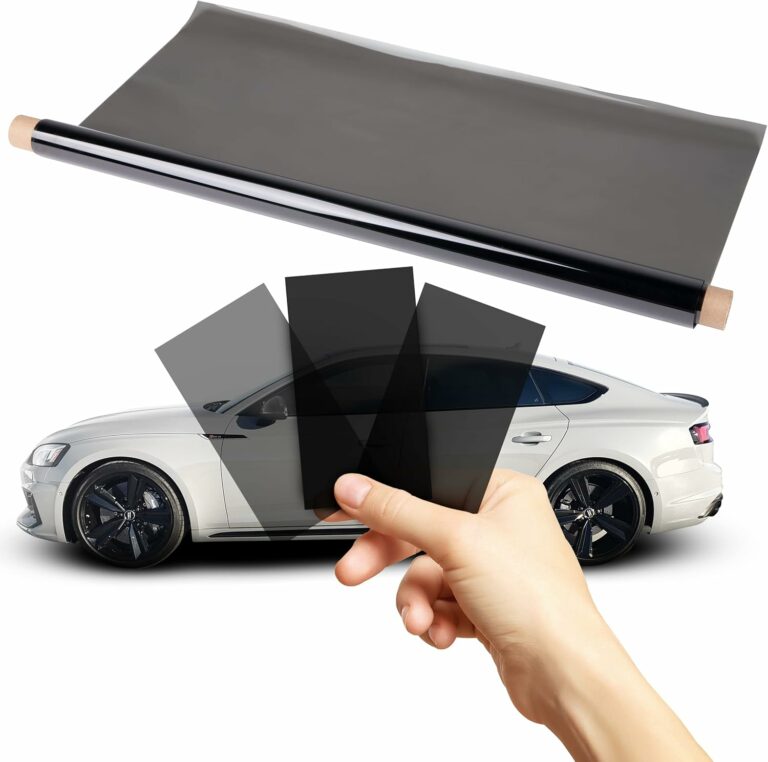Luxury Car Brands: A Comprehensive Guide to Automotive Excellence
Luxury Car Brands: A Comprehensive Guide to Automotive Excellence cars.truckstrend.com
Introduction: Beyond Mere Transportation
In the world of automobiles, luxury car brands stand as titans of engineering, design, and opulence. They represent more than just a means of transport; they embody a lifestyle, a statement of success, and a pursuit of unparalleled quality and performance. From the whisper-quiet cabin of a Rolls-Royce to the exhilarating roar of a Ferrari, luxury vehicles offer an experience that transcends the ordinary. They are meticulously crafted machines, designed to cater to the most discerning tastes, providing a blend of cutting-edge technology, sumptuous comfort, breathtaking performance, and exclusive prestige. Understanding these brands is to appreciate the pinnacle of automotive artistry and innovation, where no detail is too small, and no ambition is too grand.
Luxury Car Brands: A Comprehensive Guide to Automotive Excellence
What Defines a Luxury Car Brand?
The essence of a luxury car brand lies in a combination of factors that elevate it above standard vehicles. It’s not merely about a high price tag, but a holistic commitment to excellence across several key dimensions:
- Craftsmanship and Quality Materials: Luxury cars are built with an obsessive attention to detail, utilizing the finest materials available. This includes hand-stitched leather, exotic wood veneers, polished metals, carbon fiber, and bespoke finishes. Every surface, every seam, and every component is designed for aesthetic appeal and tactile pleasure.
- Performance and Engineering Excellence: While definitions vary, most luxury cars offer superior performance, whether it’s the smooth, powerful acceleration of a high-end sedan or the blistering speed of a supercar. This is backed by sophisticated engineering, advanced suspension systems, powerful engines, and precise handling that deliver an exceptional driving experience.
- Exclusivity and Prestige: Owning a luxury car often comes with a sense of exclusivity. Many luxury brands produce limited numbers of vehicles, or offer extensive customization options, ensuring that each car feels unique. The brand heritage and reputation also contribute significantly to the prestige associated with ownership.
- Advanced Technology and Innovation: Luxury vehicles are often pioneers in adopting the latest automotive technologies. This includes state-of-the-art infotainment systems, advanced driver-assistance systems (ADAS), innovative safety features, sophisticated connectivity, and often, pioneering electric powertrains.
- Exceptional Customer Service and Ownership Experience: Beyond the vehicle itself, luxury car brands pride themselves on providing a superior ownership experience. This can include personalized sales consultations, dedicated service advisors, exclusive events, extended warranties, concierge services, and even global roadside assistance, ensuring peace of mind and convenience for the owner.
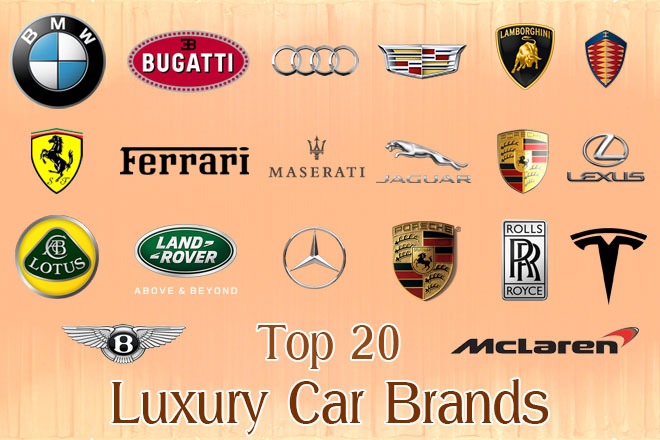
The Pillars of Luxury: Iconic Brands and Their Specialties
The landscape of luxury car brands is diverse, with each marque carving out its unique niche based on heritage, design philosophy, and target audience.
Ultra-Luxury/Exotic: The Apex of Opulence and Exclusivity
These brands represent the absolute pinnacle of automotive luxury, often hand-built with extensive customization options. They prioritize unparalleled comfort, bespoke craftsmanship, and ultimate prestige.
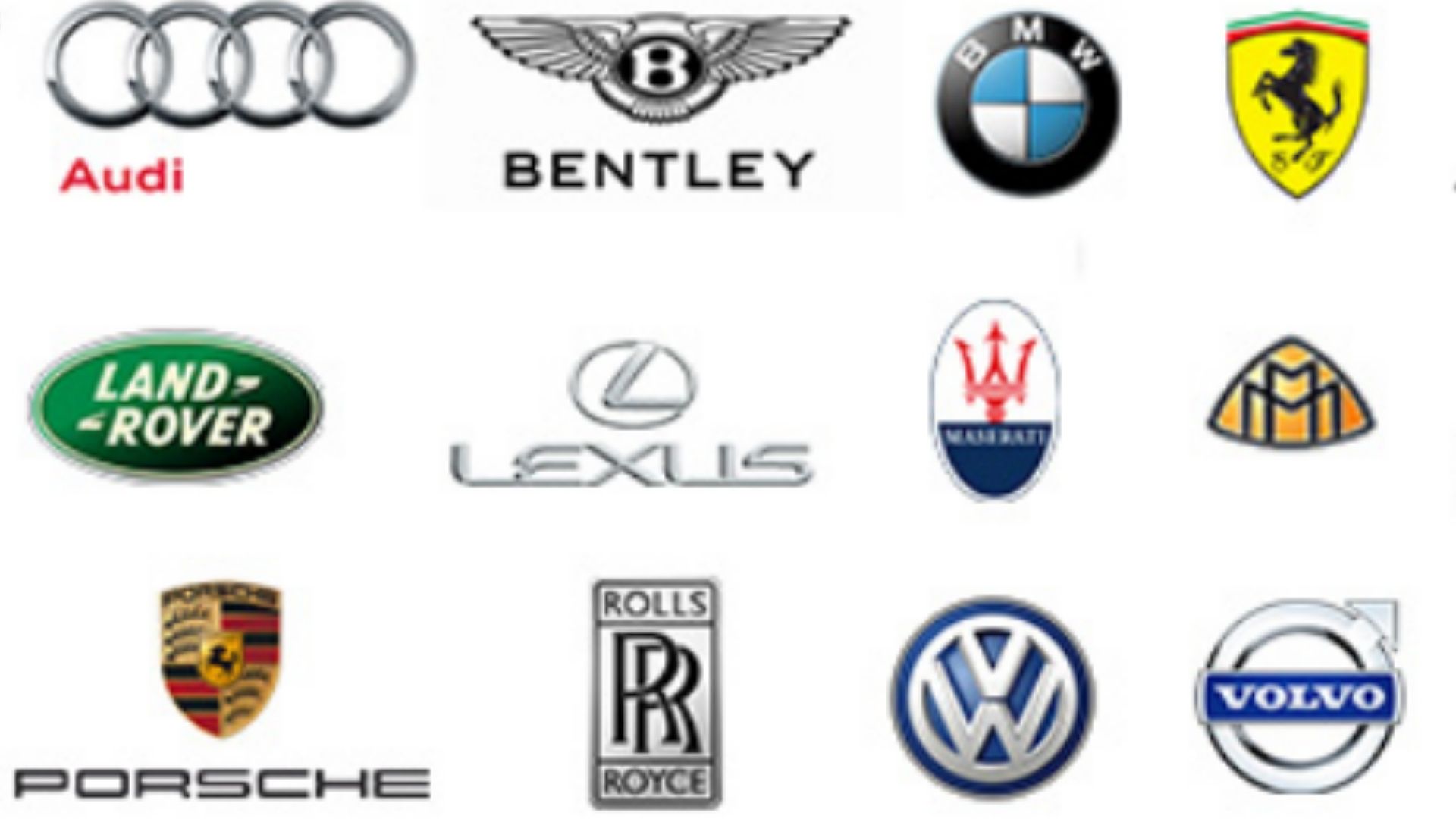
- Rolls-Royce: Synonymous with ultimate luxury, Rolls-Royce vehicles are known for their "magic carpet ride," serene cabins, and extensive bespoke options. Models like the Phantom, Ghost, and Cullinan offer unparalleled comfort and a majestic presence, often chosen by heads of state and celebrities.
- Bentley: Combining British elegance with potent performance, Bentley offers a blend of luxury and sporting capability. Models like the Continental GT, Flying Spur, and Bentayga are grand tourers, offering lavish interiors, powerful engines (often W12 or V8), and a more driver-focused experience than Rolls-Royce, while still exuding immense prestige.
- Bugatti: At the extreme end of performance and exclusivity, Bugatti produces hypercars known for their mind-boggling speed and astronomical price tags. The Chiron and its variants are engineering marvels, designed to push the boundaries of automotive performance and artistry.
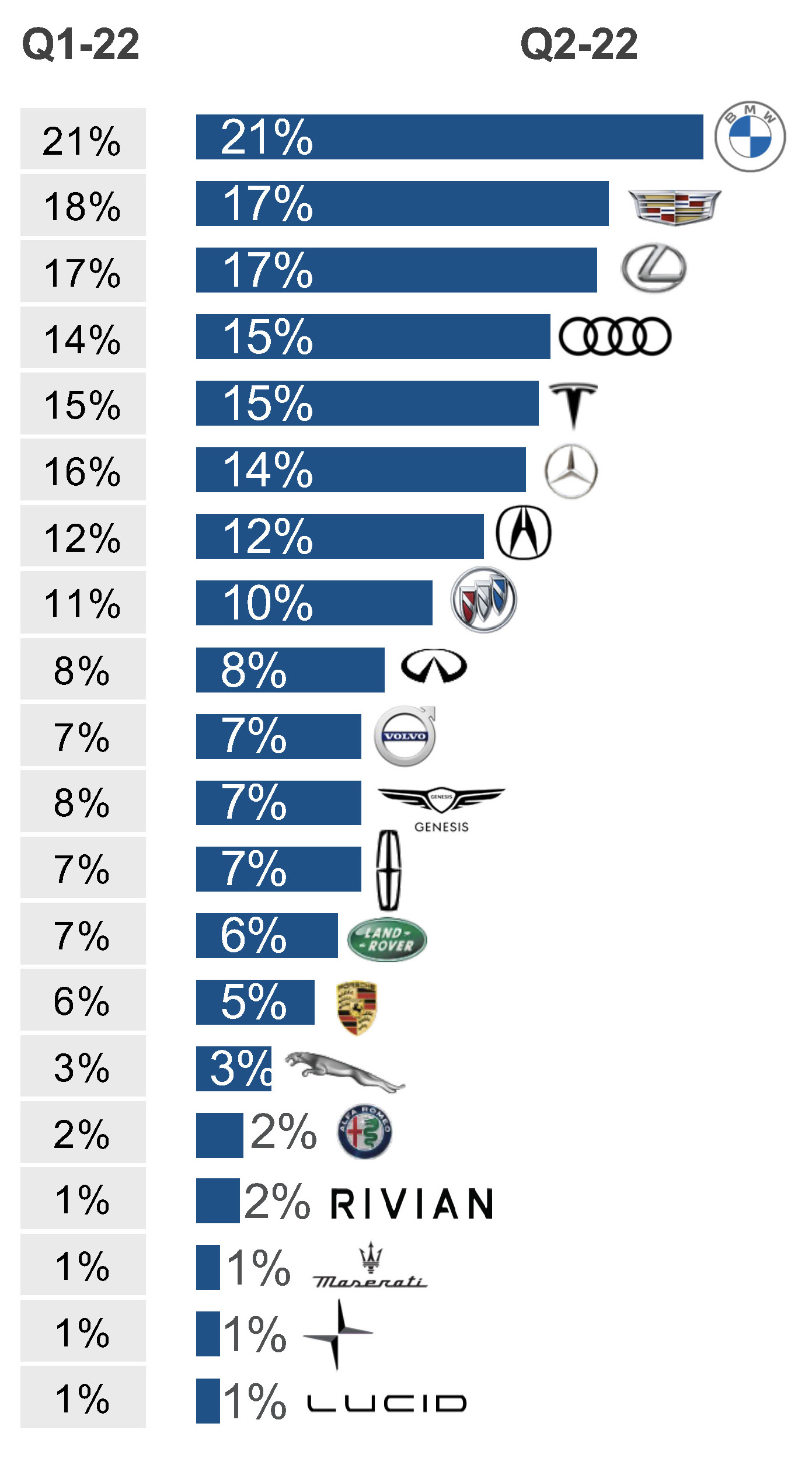
High-Performance Luxury: Speed, Precision, and Emotion
These brands focus on delivering exhilarating driving dynamics, cutting-edge technology, and a direct connection between driver and machine, often with a strong motorsport heritage.
- Porsche: Renowned for its sports cars and SUVs that offer exceptional driving dynamics, Porsche successfully blends performance with everyday usability. The 911, Panamera, Cayenne, Macan, and the electric Taycan are celebrated for their precision engineering, thrilling acceleration, and iconic design.
- Ferrari: The epitome of Italian passion and performance, Ferrari is a legendary supercar manufacturer. Its vehicles are known for their breathtaking speed, iconic V8 and V12 engines, and design that evokes pure emotion. Owning a Ferrari is often a lifelong dream for automotive enthusiasts.
- Lamborghini: Characterized by their aggressive, futuristic designs and powerful engines, Lamborghinis are supercars that demand attention. Models like the Huracán, Aventador, and the Urus SUV offer raw power and an unmistakable presence, often appealing to those who desire a bold statement.
- McLaren: A relatively newer entrant to the road car luxury market compared to its racing heritage, McLaren produces lightweight, high-performance supercars and hypercars. Their focus is on advanced aerodynamics, carbon fiber construction, and track-focused performance, directly leveraging Formula 1 technology.
Premium Executive Luxury: Balanced Sophistication and Innovation
These brands offer a more accessible form of luxury, balancing performance, comfort, technology, and practicality, often serving as daily drivers for successful professionals.
- Mercedes-Benz: A pioneer in automotive innovation, Mercedes-Benz offers a wide range of luxury vehicles, from compact sedans to full-size SUVs and performance-oriented AMG models. Known for its sophisticated design, advanced technology, opulent interiors, and a comfortable, refined ride.
- BMW: Famous for its "Ultimate Driving Machine" philosophy, BMW emphasizes driving dynamics and sporty performance across its lineup. From the engaging 3 Series to the luxurious 7 Series and versatile X-SUVs, BMW offers a blend of performance, technology, and premium comfort.
- Audi: With its "Vorsprung durch Technik" (Progress through Technology) motto, Audi is known for its elegant design, quattro all-wheel drive, advanced infotainment systems, and sophisticated interiors. Its lineup spans from compact luxury to high-performance RS models and electric e-tron vehicles.
- Lexus: Toyota’s luxury division, Lexus is celebrated for its unwavering reliability, supremely quiet and comfortable cabins, and exceptional customer service. While often seen as more conservative in design, Lexus vehicles offer a serene driving experience and innovative hybrid powertrains.
Niche/Emerging Luxury: Redefining the Segment
- Tesla: While not traditional luxury in terms of bespoke materials, Tesla redefined luxury through its cutting-edge electric vehicle technology, minimalist interiors, unparalleled software integration, and blistering acceleration. It appeals to a tech-savvy, environmentally conscious luxury buyer.
- Genesis: Hyundai’s luxury arm, Genesis has rapidly gained recognition for offering compelling luxury vehicles with distinctive design, generous features, and strong value propositions. Models like the G80 and GV70 challenge established luxury brands with their blend of refinement and advanced tech.
- Aston Martin: Iconic British marque known for its elegant grand tourers and sports cars, often associated with James Bond. Aston Martin offers a unique blend of timeless design, handcrafted luxury, and powerful engines, providing a more emotional and artistic ownership experience.
The Allure of Ownership: Benefits and Considerations
Owning a luxury car is a significant investment that comes with distinct advantages and important considerations.
Benefits:
- Status and Image: A luxury car undeniably conveys a message of success, sophistication, and discerning taste.
- Superior Driving Pleasure: The combination of powerful engines, refined suspensions, and precise handling creates an unparalleled driving experience.
- Enhanced Safety: Luxury vehicles often incorporate the latest safety innovations, including advanced driver-assistance systems (ADAS) and robust construction.
- Advanced Features and Comfort: From multi-zone climate control and massaging seats to premium sound systems and sophisticated infotainment, luxury cars offer a host of features designed for maximum comfort and convenience.
- Potential for Value Retention (for some): While most cars depreciate, certain rare or highly sought-after luxury and exotic models can hold their value well, or even appreciate over time.
- Exceptional Service and Warranty: Owners typically benefit from premium after-sales service, longer warranties, and often, complimentary maintenance packages.
Considerations/Challenges:
- High Initial Cost: The most obvious hurdle is the substantial purchase price, which can range from tens of thousands to well over a million dollars.
- Depreciation: While some models defy this, most luxury cars depreciate significantly, especially in the first few years.
- Maintenance Expenses: Parts and labor for luxury vehicles are typically more expensive, and specialized technicians are often required.
- Insurance Costs: Due to their higher value and repair costs, insurance premiums for luxury cars are considerably higher.
- Fuel Efficiency (for some): Many high-performance luxury cars, particularly those with large engines, have lower fuel efficiency, leading to higher running costs.
- Complexity: The advanced technology can sometimes lead to more complex systems that may be costly to repair if issues arise.
Navigating the Luxury Market: Tips for Prospective Buyers
For those considering entering the world of luxury automobiles, a thoughtful approach is essential:
- Define Your Priorities: Are you seeking ultimate comfort, blistering performance, cutting-edge technology, or pure status? Understanding your primary needs will narrow down your choices.
- Research Thoroughly: Dive deep into reviews, reliability reports, and owner forums. Understand the common issues, maintenance schedules, and long-term ownership costs for specific models you’re considering.
- New vs. Pre-Owned: A pre-owned luxury car can offer significant savings, especially if it’s a few years old, as the steepest depreciation often occurs in the first 2-3 years. Look for certified pre-owned (CPO) programs from dealerships for added peace of mind.
- Test Drive Extensively: Don’t just take a quick spin around the block. Drive the car in various conditions—city traffic, highways, and even winding roads if performance is a factor. Pay attention to comfort, noise levels, infotainment usability, and driving dynamics.
- Understand Total Cost of Ownership (TCO): Beyond the purchase price, factor in insurance, fuel, scheduled maintenance, potential repairs, and depreciation. Get quotes for these before committing.
- Explore Financing and Leasing Options: Luxury car brands often offer attractive financing or leasing programs. Leasing can be a good option if you prefer to drive a new car every few years and don’t want to worry about long-term depreciation.
- Consider Bespoke Options: Many luxury brands offer extensive customization. If uniqueness is important, explore the possibilities, but be mindful that bespoke options significantly increase the price.
- Verify Service Network: Ensure there’s a reputable dealership and service center conveniently located near you, as specialized service is often required.
Future Trends in Luxury Automotive
The luxury car market is constantly evolving, driven by technological advancements and shifting consumer preferences:
- Electrification: Almost every luxury brand is investing heavily in electric vehicles (EVs). From high-performance electric supercars to ultra-luxury electric SUVs, the silent power and instant torque of electric powertrains are becoming a hallmark of modern luxury.
- Autonomous Driving: While full autonomy is still some way off, advanced driver-assistance systems (ADAS) are becoming increasingly sophisticated, offering features like hands-free driving in certain conditions, enhancing both convenience and safety.
- Sustainability: Luxury brands are increasingly focusing on sustainable materials and production processes, catering to an environmentally conscious elite.
- Hyper-Personalization: Beyond traditional options, brands are offering even deeper levels of customization, allowing owners to truly create a one-of-a-kind vehicle.
- Digital Integration: Seamless connectivity, over-the-air updates, and intuitive digital interfaces are becoming standard, transforming the car into a highly personalized mobile hub.
Luxury Car Brands: Price Overview
Understanding the price landscape of luxury cars is crucial, as costs vary dramatically based on brand, model, and customization. The table below provides a general starting price range for popular models within each brand, keeping in mind that these are approximate and can fluctuate significantly with trim levels, options, and market conditions.
| Brand | Category | Starting Price Range (USD) | Key Differentiator |
|---|---|---|---|
| Rolls-Royce | Ultra-Luxury | $350,000 – $600,000+ | Ultimate bespoke luxury, silent ride, unparalleled comfort, majestic presence. |
| Bentley | Ultra-Luxury/Grand Touring | $200,000 – $300,000+ | Elegant grand touring, powerful engines, exquisite craftsmanship, driver-focused. |
| Bugatti | Hypercar | $3,000,000 – $5,000,000+ | Extreme performance, engineering marvels, ultimate exclusivity, limited production. |
| Ferrari | High-Performance Supercar | $250,000 – $500,000+ | Pure driving emotion, iconic design, legendary engines, motorsport heritage. |
| Lamborghini | High-Performance Supercar | $200,000 – $400,000+ | Aggressive styling, raw power, distinctive sound, bold statement. |
| Porsche | Performance Luxury | $60,000 – $200,000+ | Precision engineering, exceptional driving dynamics, daily usability, iconic design. |
| Mercedes-Benz | Premium Executive Luxury | $40,000 – $200,000+ | Sophistication, technological innovation, luxurious comfort, wide model range. |
| BMW | Premium Executive Luxury | $40,000 – $150,000+ | "Ultimate Driving Machine," sporty handling, advanced technology, refined interiors. |
| Audi | Premium Executive Luxury | $38,000 – $150,000+ | Progressive design, Quattro AWD, advanced infotainment, sophisticated interiors. |
| Lexus | Premium Executive Luxury | $38,000 – $100,000+ | Unwavering reliability, serene comfort, quiet cabins, exceptional customer service. |
| Tesla | Electric Luxury | $45,000 – $130,000+ | Cutting-edge EV technology, minimalist design, rapid acceleration, software-driven. |
| Aston Martin | Niche Luxury/GT | $150,000 – $300,000+ | Timeless British design, handcrafted elegance, powerful engines, exclusive appeal. |
| Genesis | Value Luxury | $40,000 – $80,000+ | Distinctive design, generous features, strong value, growing prestige. |
Note: Prices are approximate starting MSRPs and can vary significantly based on model, trim, options, region, and market conditions.
Frequently Asked Questions (FAQ) about Luxury Car Brands
Q1: What is the most expensive luxury car brand?
A1: Brands like Bugatti and Rolls-Royce generally hold the top spots for the most expensive production luxury cars. However, bespoke, one-off, or highly limited-edition vehicles from brands like Ferrari, McLaren, and Koenigsegg can often surpass these prices, sometimes reaching tens of millions of dollars.
Q2: Do luxury cars hold their value?
A2: It varies significantly. While most cars depreciate, some highly exclusive or rare luxury models (e.g., certain Ferraris, limited-edition Porsches) can hold their value well or even appreciate over time. Mainstream luxury sedans and SUVs generally depreciate faster than economy cars in absolute dollar terms, but their percentage depreciation might be comparable or slightly better over the long run than some budget vehicles.
Q3: Are luxury cars more expensive to maintain?
A3: Generally, yes. Luxury cars use specialized parts, advanced technologies, and often require expert technicians, all of which contribute to higher maintenance and repair costs compared to mainstream vehicles. Extended warranty plans or pre-paid maintenance packages can help mitigate these costs.
Q4: What’s the difference between "premium" and "luxury" car brands?
A4: The terms are often used interchangeably, but "luxury" generally implies a higher level of exclusivity, craftsmanship, bespoke options, and ultimate refinement beyond just "premium" features. Brands like Mercedes-Benz, BMW, and Audi are often considered "premium luxury" as they offer a wide range of models that are more accessible. Ultra-luxury brands like Rolls-Royce and Bugatti operate in a segment of their own, focusing on extreme exclusivity and customization.
Q5: Is owning a luxury car worth it?
A5: This is subjective and depends on individual priorities and financial situations. For some, the enhanced driving experience, superior comfort, advanced features, and prestige are well worth the investment. For others, the higher purchase price and running costs may not justify the benefits. It’s a personal decision based on what you value in an automobile.
Conclusion: The Enduring Allure of Automotive Perfection
Luxury car brands represent the zenith of automotive achievement, where passion for engineering meets the artistry of design. They are more than just modes of transportation; they are experiences, statements, and showcases of human ingenuity. While the journey of ownership comes with its unique considerations, the allure of superior performance, exquisite craftsmanship, cutting-edge technology, and unparalleled prestige continues to captivate and inspire. As the industry evolves with new technologies like electrification and autonomous driving, luxury car brands will undoubtedly continue to push boundaries, redefining what it means to drive, and own, the very best.

